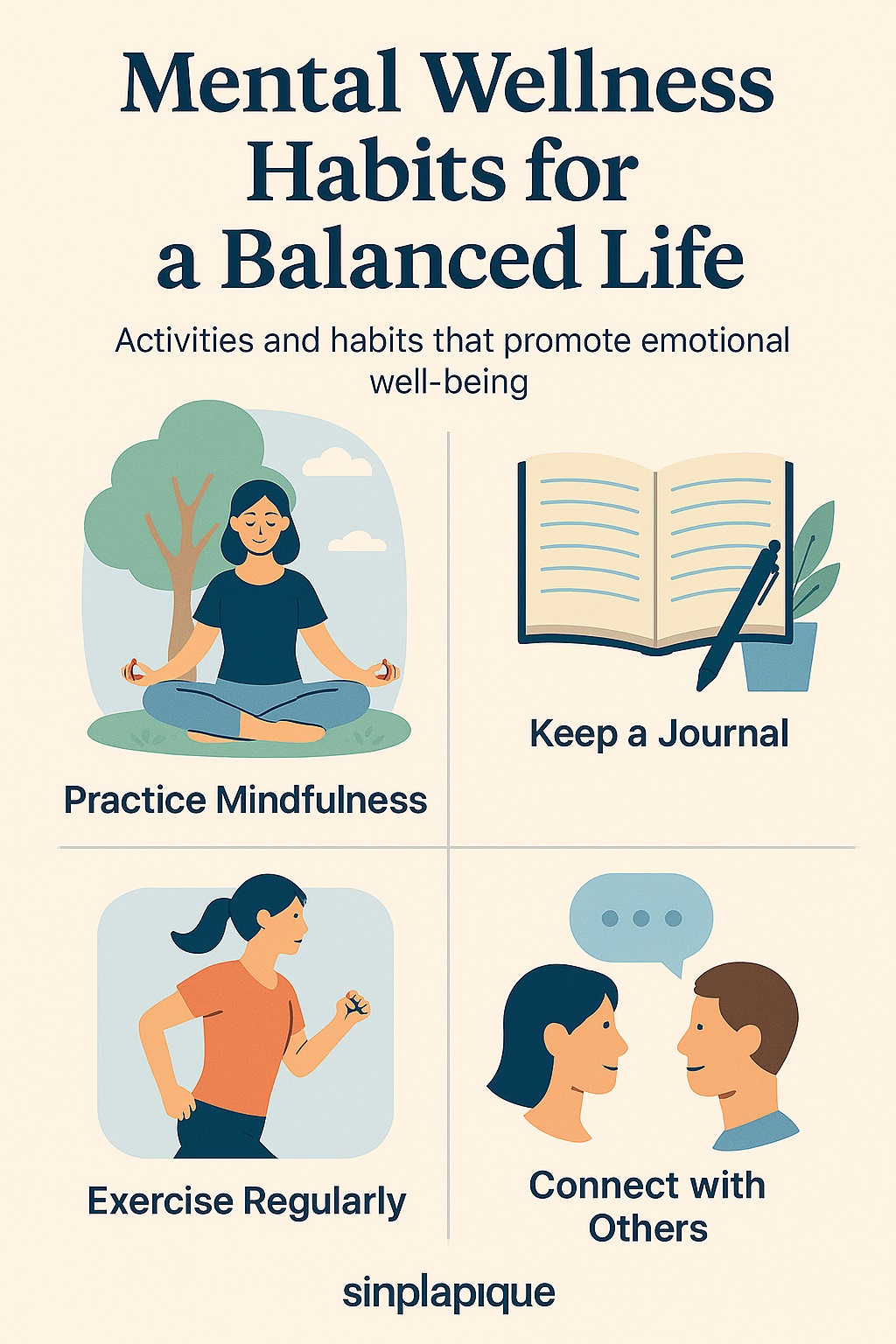Mental Wellness Habits for a Balanced Life – Activities and Habits That Promote Emotional Well-Being

In today’s fast-paced world, nurturing mental wellness is essential for maintaining balance and resilience in our daily lives. Emotional well-being is not a destination but a continuous journey, supported by the habits and activities we nurture over time. Integrating small, intentional practices into our routine can have a profound impact on how we manage stress, build emotional resilience, and ultimately lead a more balanced life.
Embracing Mindfulness and Meditation
Mindfulness is the art of being fully present in the moment without judgment. Regular mindfulness meditation helps quiet the mind, reduce anxiety, and improve emotional balance. Starting with simple techniques—such as focusing on your breath or engaging in a brief guided meditation—can help establish a sense of calm that carries into your day. Over time, these practices foster greater clarity and self-awareness, empowering you to handle life’s challenges with empathy and composure.
Journaling for Emotional Clarity
Writing down your thoughts and emotions can be a powerful tool for reflection and healing. Journaling provides a private space to explore your feelings, identify patterns, and develop personalized coping strategies. Whether you choose to write a daily gratitude list or vent your frustrations in a diary, this practice helps convert overwhelming emotions into manageable insights, paving the way for constructive change.
Incorporating Physical Activity
Regular exercise is proved to enhance both physical and mental health. Activities such as yoga, walking in nature, or even dancing to your favorite tunes release endorphins—the body’s natural ‘feel-good’ chemicals. Moving your body not only boosts your mood but also reduces stress and anxiety. Tailor your physical activity to what resonates with you; even a few minutes a day can reinforce a balanced state of mind.
Creating Meaningful Connections
Social interactions play a pivotal role in emotional well-being. Surrounding yourself with supportive friends and family provides a safety net during turbulent times and enriches your daily experiences. Whether it’s engaging in a heartfelt conversation, joining a community group, or simply sharing a laugh with a loved one, these human connections nurture a sense of belonging and security that is fundamental to mental wellness.
Engaging in Creative and Relaxing Hobbies
Investing time in hobbies that spark joy is essential in maintaining emotional balance. Whether you enjoy painting, gardening, cooking, or listening to music, engaging in creative pursuits allows you to express yourself freely and relieve tension. These activities serve as a form of therapy by offering a break from routine stressors and a moment to reconnect with your inner self.
Establishing a Routine and Self-Care Practices
Consistency is key when nurturing mental wellness. Establishing a daily routine that includes time for relaxation, light exercise, mindfulness, and sufficient rest can significantly impact your overall emotional state. Self-care is not indulgence—it’s a necessary investment in your health. By prioritizing practices that promote emotional balance, you lay the foundation for a resilient mindset and a happier life.



0 Comments
No comments yet, be the first to comment